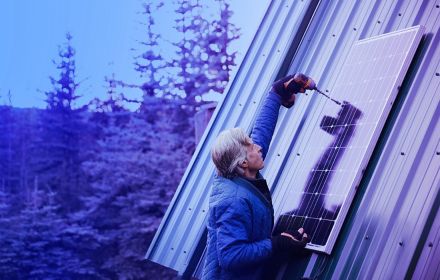Prediction
Space has captured the human imagination for millennia. While, for now, Earth remains the solar system's only known inhabited planet, when a team of astronomers announced in 2020 the discovery of the molecule phosphine on Venus, living on another planet didn't seem as far out of reach.
Thanks to plummeting launch costs over the past 20 years and the popularization of space travel, thrill-seekers can now venture past 100km above the earth to take in the unparalleled views. This has opened up new opportunities for business in space. Start ups are now selling “space experiences” where people can, for short periods of time, undertake a range of activities within space such as host meetings, attend events or tour the International Space Station.
Despite all the headlines heralding the benefits and revenue potential of space tourism and travel, there continues to be deep concerns around sustainability and human impacts on Earth and other planets. Scientists warn we shouldn't assume that problems here on Earth can be fixed simply by inhabiting Mars or Venus and establishing landing bases.
Today, the debate revolves around two opposing beliefs:
- That people have every right to seek alternative stellar homes to help ensure the human race survives and thrives.
- That humankind is a ravenous horde that won't value or protect other planet's resources any more than they do here on earth.
It is predicted that in 2040, the commercial sector is diligently working to open up new markets and enhance profitability from interplanetary initiatives. Where the line is drawn between sustainability and profits remains to be seen.
There's no denying the idea of space travel and colonization is exciting, however there is a new generation of concerned global citizens pushing back against the belief that there is no alternative but to see where space exploration takes us. It is questioned whether the knowledge and benefits gained to foster sustainable development here on Earth are greater than the continuing damages brought about by climate change, pollution, waste, and deforestation. It is proposed that space exploration actually exacerbates these pain points and is contributing to even broader problems.
Those holding opposing views say that exploitation of interstellar resources on the moon and elsewhere will likely reduce the burden on Earth. They imagine a world where agriculture and mining activities are relegated to the moon and other planets. And they believe asteroid harvesting and mining could supply outer space communities with the metals, water, and oxygen needed to survive.
Why did this happen?
Looking back, there are several trends from 2021 that are likely to have set the foundations for where we are today.
After the Perseverance rover landed successfully on Mars in 2021, billionaires weren't far behind, driven by dreams and huge commercial interests. As the trio of space billionaires (Branson, Bezos, and Musk) accelerated their forays into the atmosphere, some environmentalists and world leaders, tried to persuade them to redirect their vast wealth towards sustainability on Earth rather than giving up and heading into space. Scientists began to explore questions like “What is planetary sustainability?” and “What are its implications for space research?”
As planet Earth continues to deal with unstable economies and global sustainability challenges, the debate rages on as to whether pursuing commercial space initiatives is a good and proper use of resources.
Impact
Does our planet's future depend on space? Do humans need to explore and exploit other planets and solar systems to save their own? What does this mean for space business, geo-politics and laws?
Yes, satellite technology and space exploration have forced the development of new technologies that help assess and address sustainability issues like climate change, but they also raise concerns about astral sustainability problems like space debris and launch effects on the atmosphere. Would it make more sense to use these technologies here on Earth?
Satellite monitoring helped achieve more than ten of the goals set out by the 2030 SDGs.
Critics still ask, “If we can't look after the planet we have, why do we think we can nourish and support another one, two, or more?” Is it really being sustainable to put other planets and their ecosystems above the human population and its needs?
For the foreseeable future, space exploration will likely remain a divisive issue that highlights human inequalities and celebrates privileged pursuits. But we shouldn't lose sight of how space travel has always given humans hope, including the hope we can survive elsewhere.
Related content
Authors

Suzana Bellini
KPMG in Brazil

Ilushya Kapila
University of Leeds
Connect with us
- Find office locations kpmg.findOfficeLocations
- kpmg.emailUs
- Social media @ KPMG kpmg.socialMedia
Stay up to date with what matters to you
Gain access to personalized content based on your interests by signing up today




